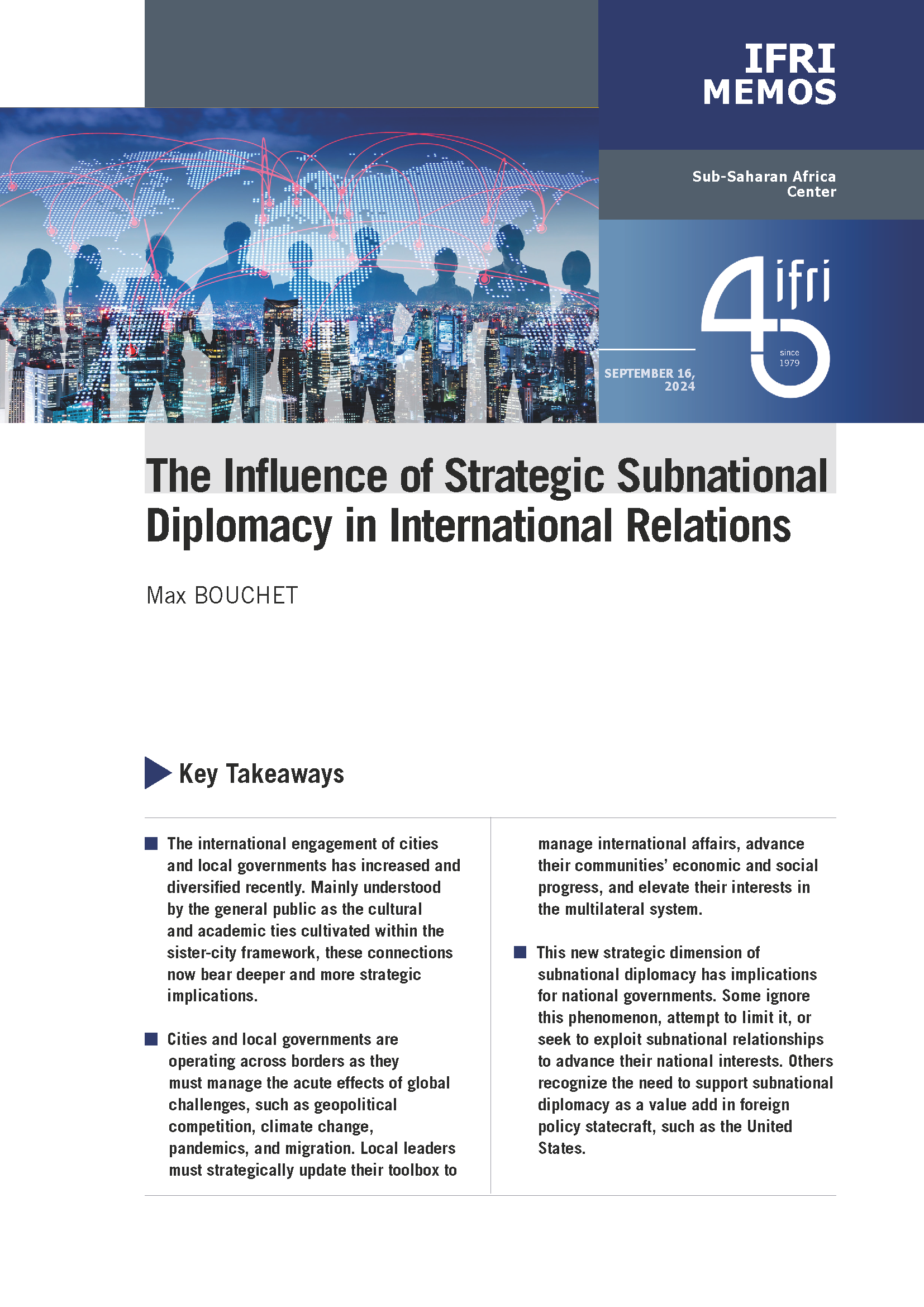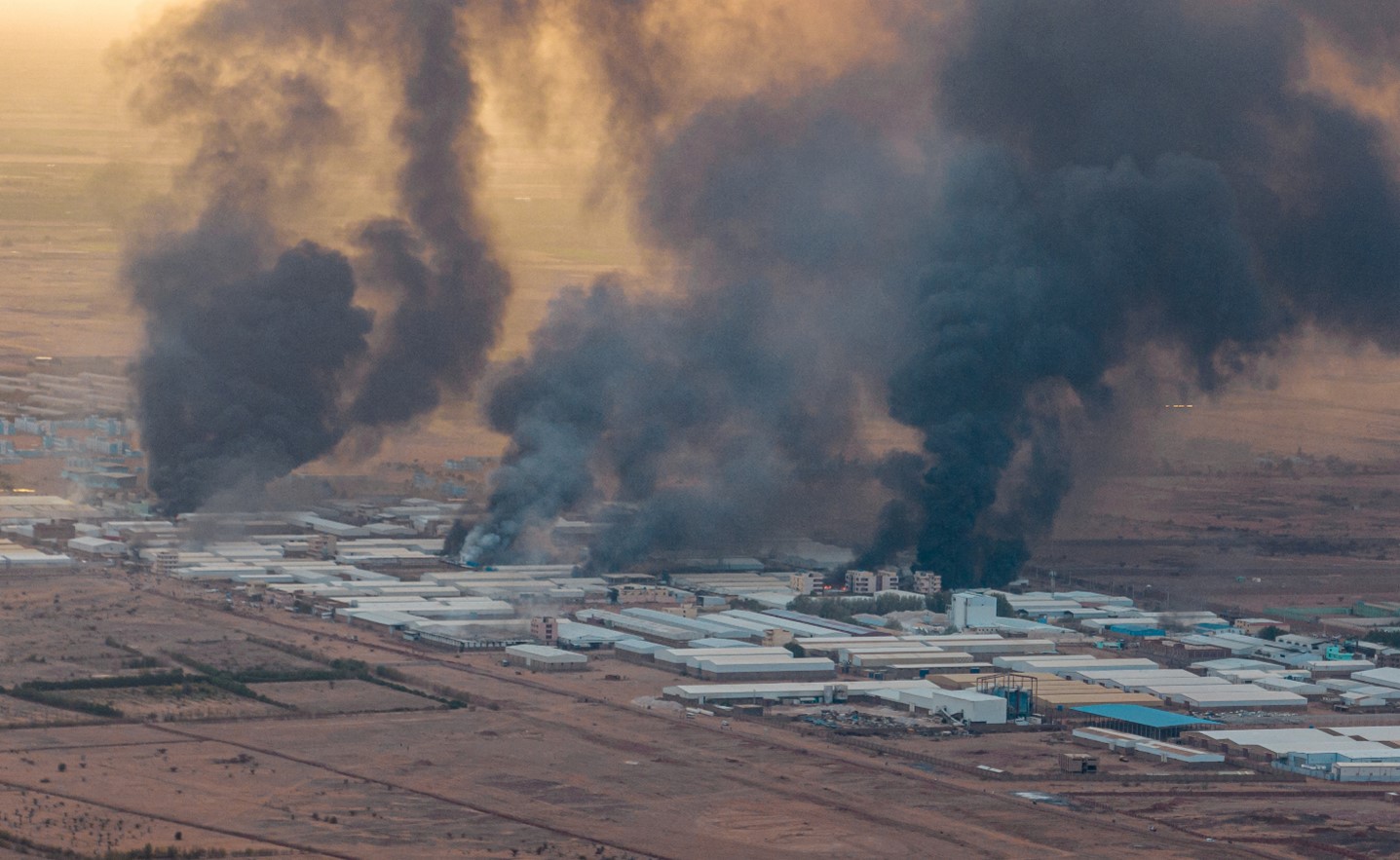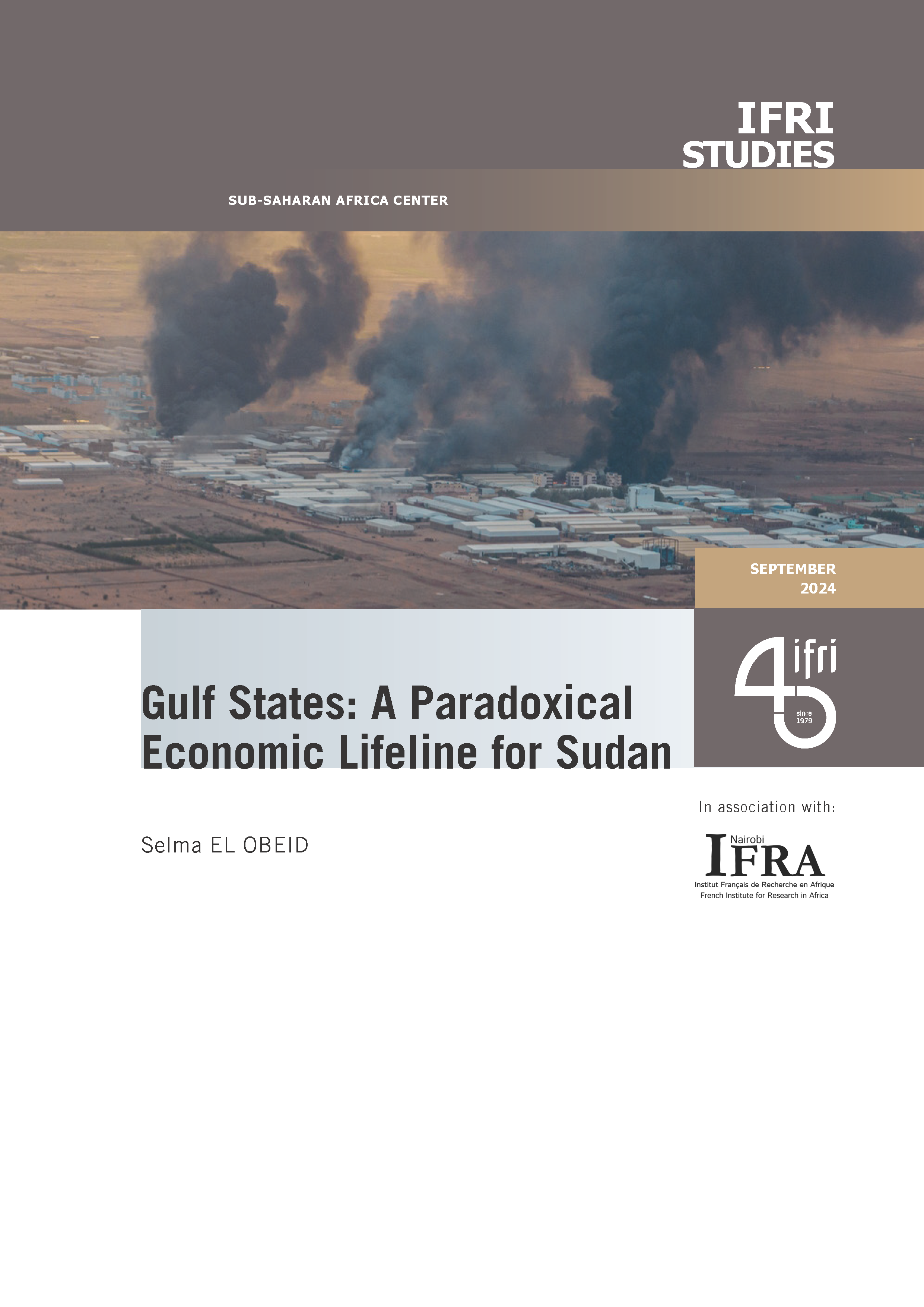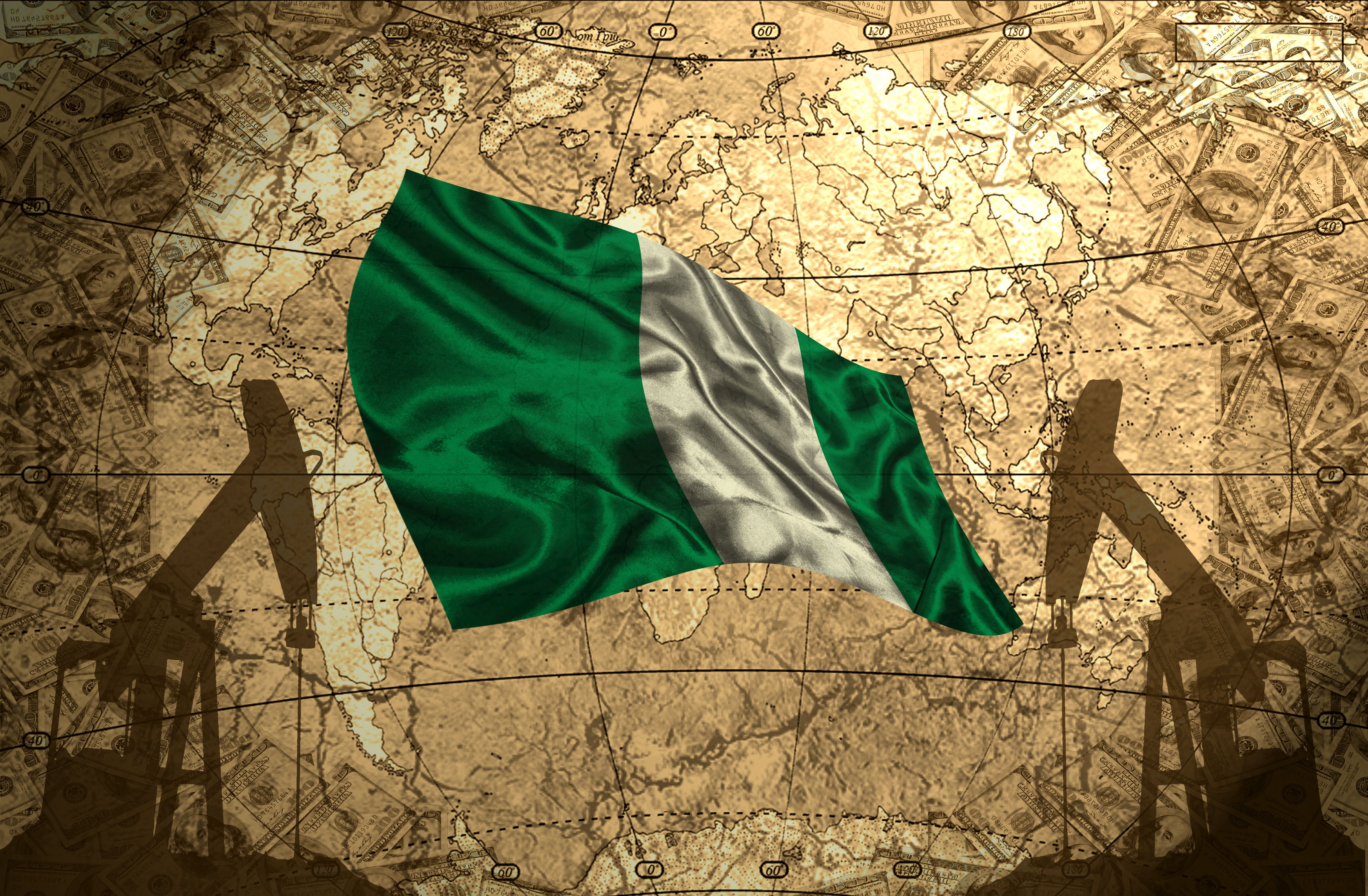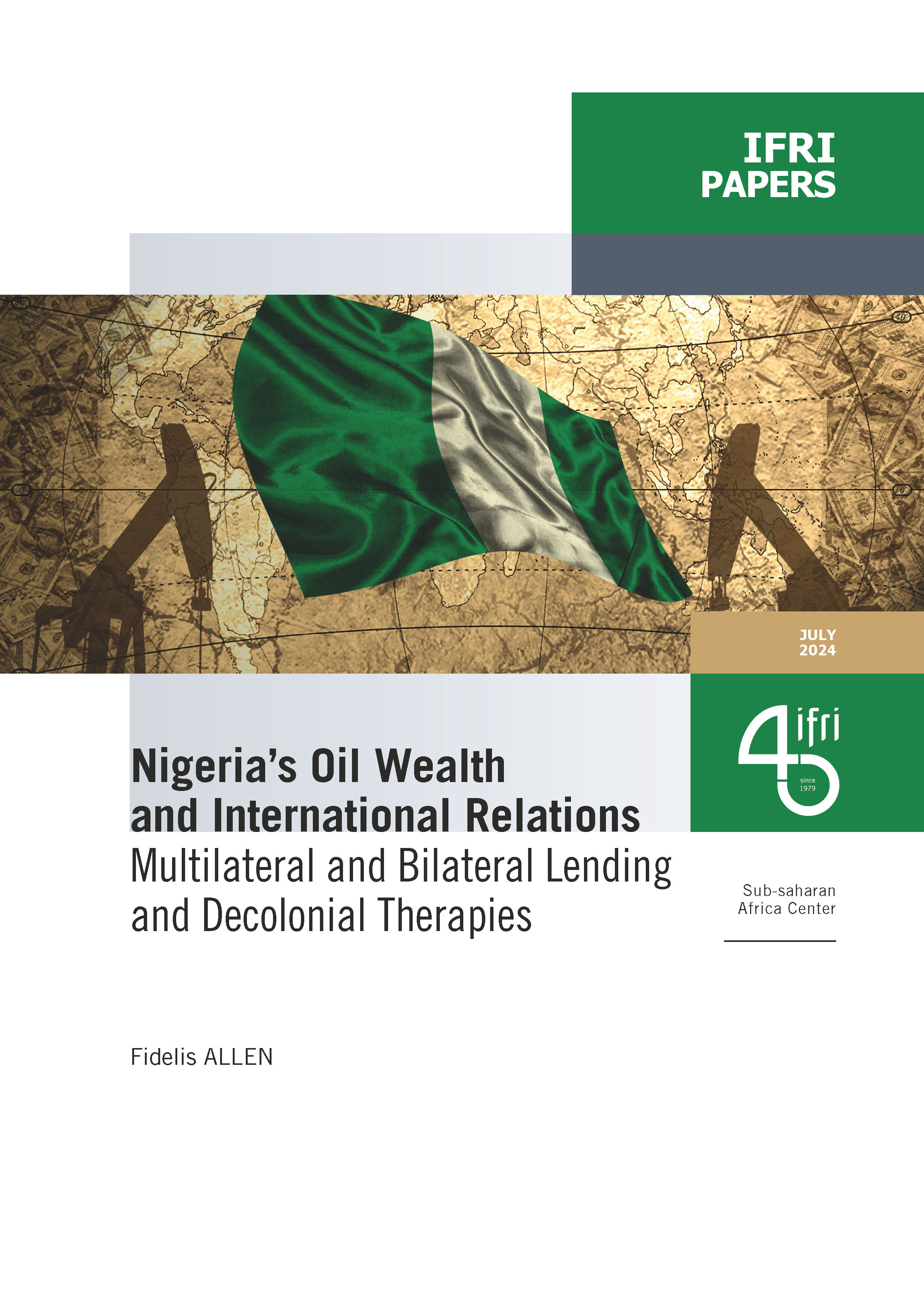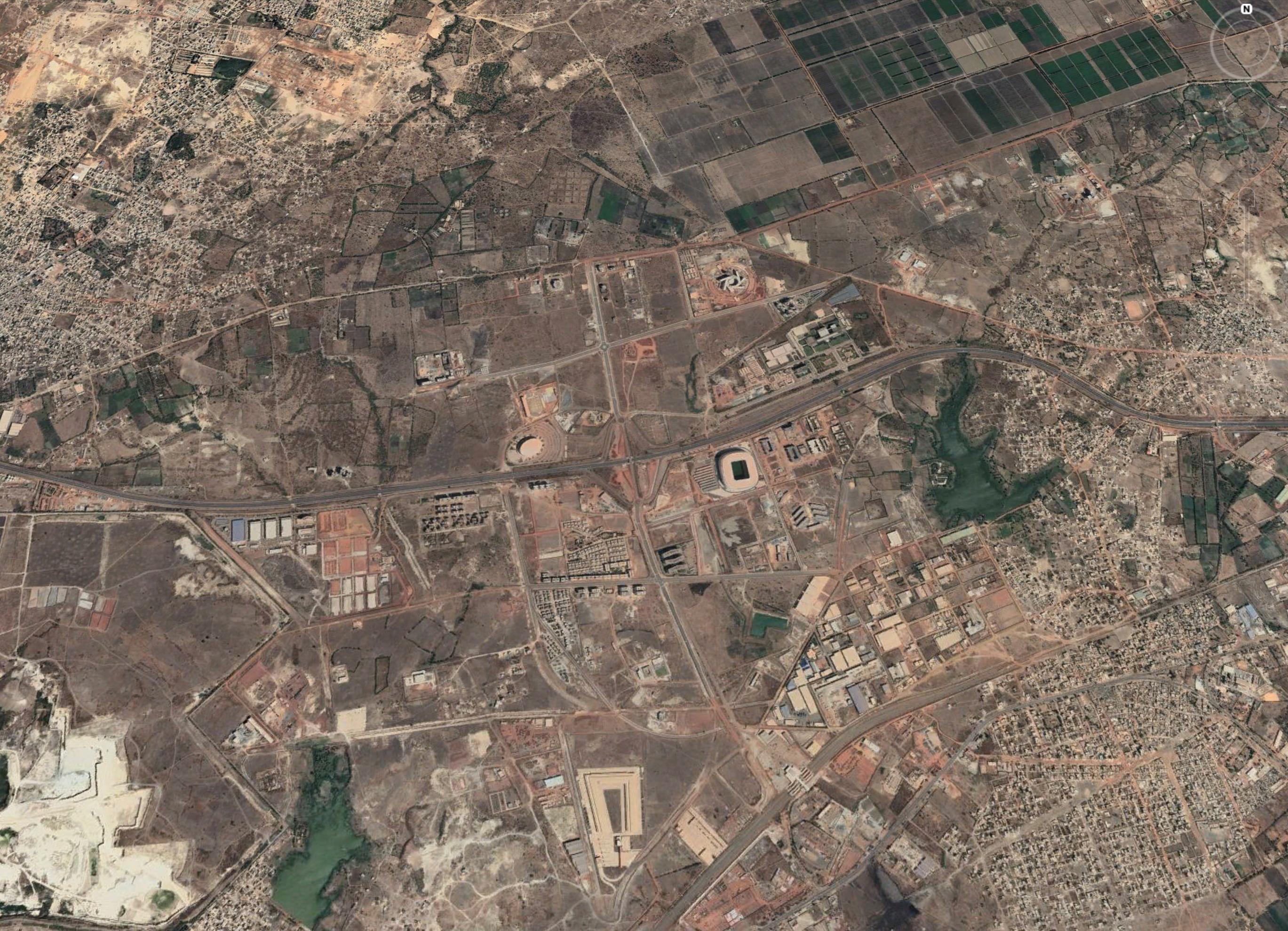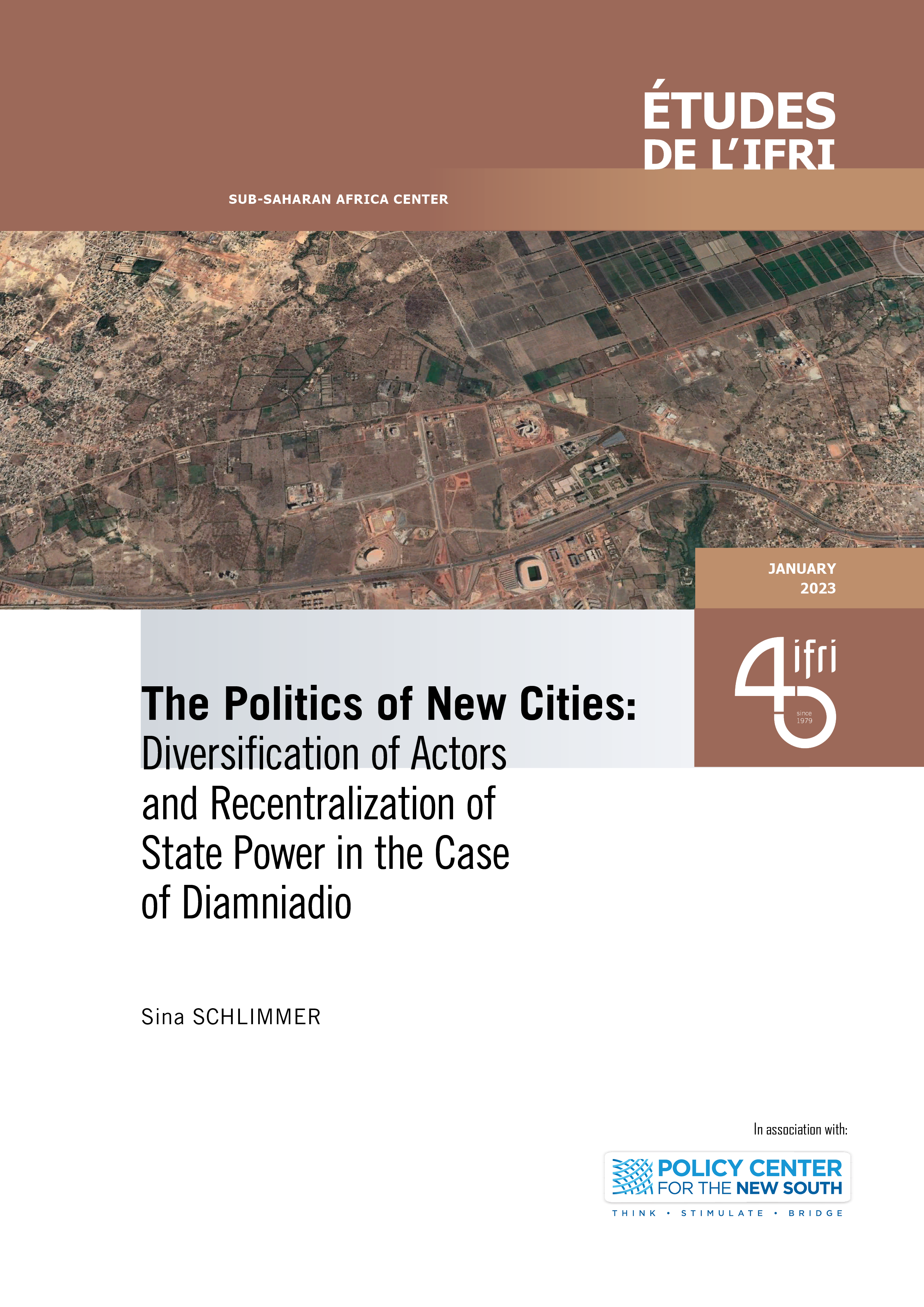Sub-Saharan Africa Center
Founded in 2007, Ifri's Sub-Saharan Africa center produces an in-depth analysis of the African continent and its security, geopolitical, political and socio-economic dynamics (in particular the phenomenon of urbanization). The Center aims to be both, through various publications and conferences, a space for disseminating analyzes intended for the media and the public but also a decision-making tool for political and economic actors with regard to the continent.
The center produces analyses for various organizations such as the Ministry of the Armed Forces, the Ministry of Europe and Foreign Affairs, the Organization for Economic Cooperation and Development (OECD), the French Development Agency (AFD) and even for various private supports. Its researchers are regularly interviewed by parliamentary committees.
The organization of events of various formats complements the production of analyzes by bringing the different spheres of the public space (academic, political, media, economic and civil society) to meet and exchange analytical tools and visions of the continent. The Sub-Saharan Africa Center regularly welcomes political leaders from different sub-Saharan African countries.
Read more

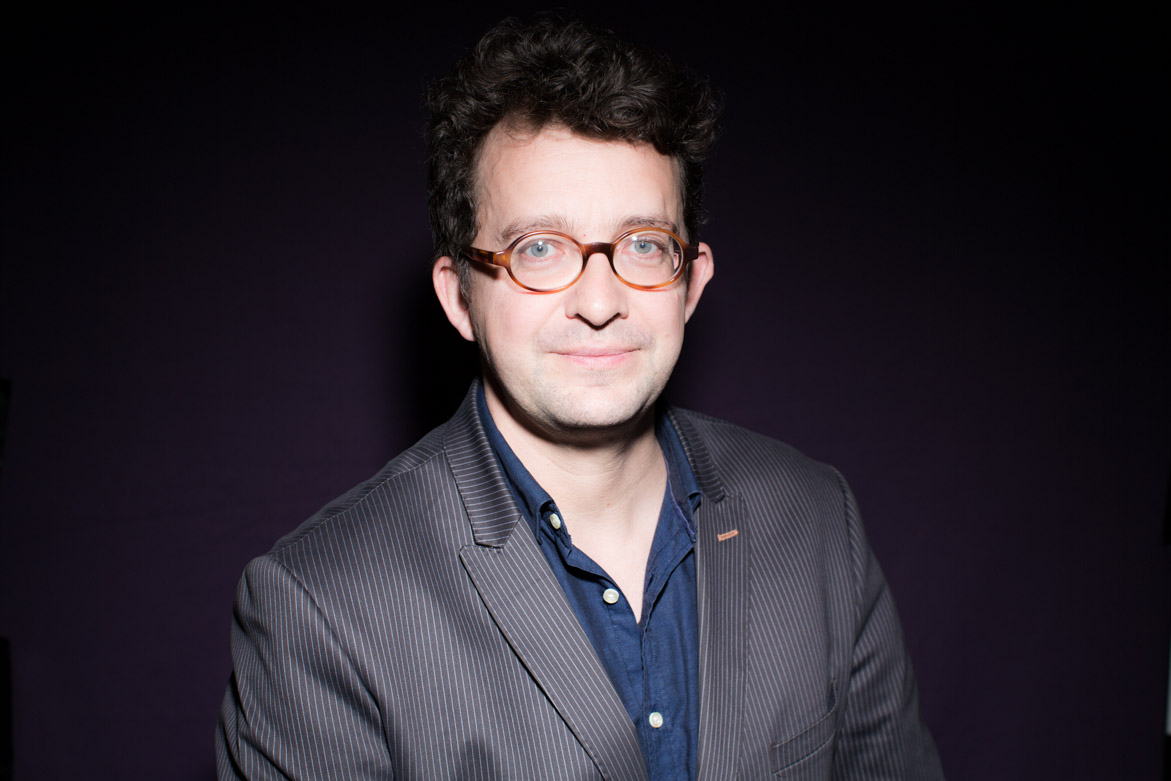
Researcher and Head of the Sub-Saharan Africa Center, Ifri
Publications
See all our interventions
Flagship Publications
Titre Bloc Axe
Areas of Research
See all our interventions
Titre Axe de recherche
Governing the Urban Transition in Africa
Governing the Urban Transition in Africa Research Program, created within the Ifri Sub-Saharan Africa Center, addresses the major challenges of urban development in Africa through a sectoral and transversal approach structured around three key sectors: land issues, urban infrastructure and mobility.
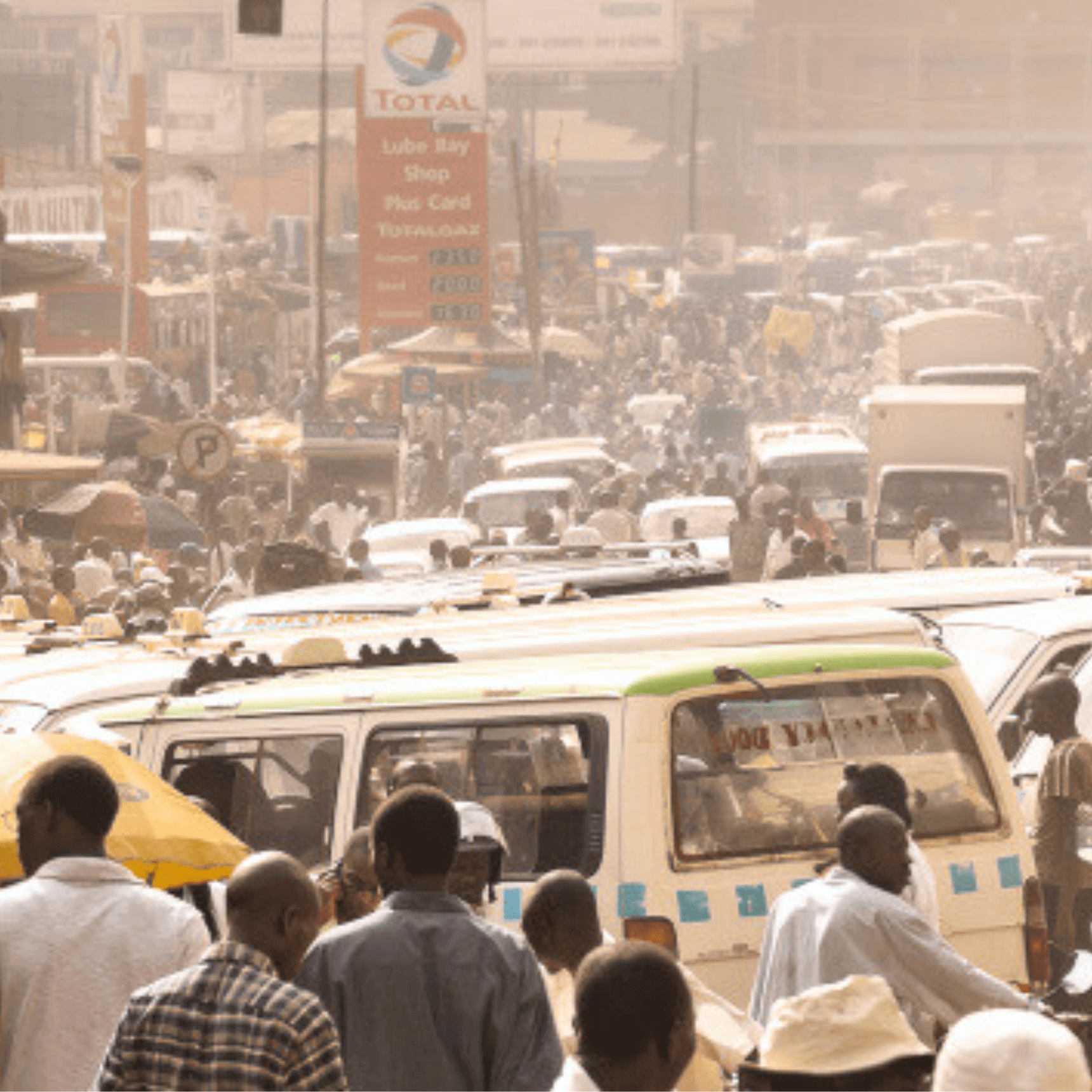
Titre Axe de recherche
Africa on the International Scene
The Africa on the International Scene research axis whithin Ifri's Sub-Saharan Africa Center aims at analyzing the African policies established by the traditional partners of the African continent (France, UK, etc.) as well as by the emerging States (China, Turkey, Brazil, etc.).
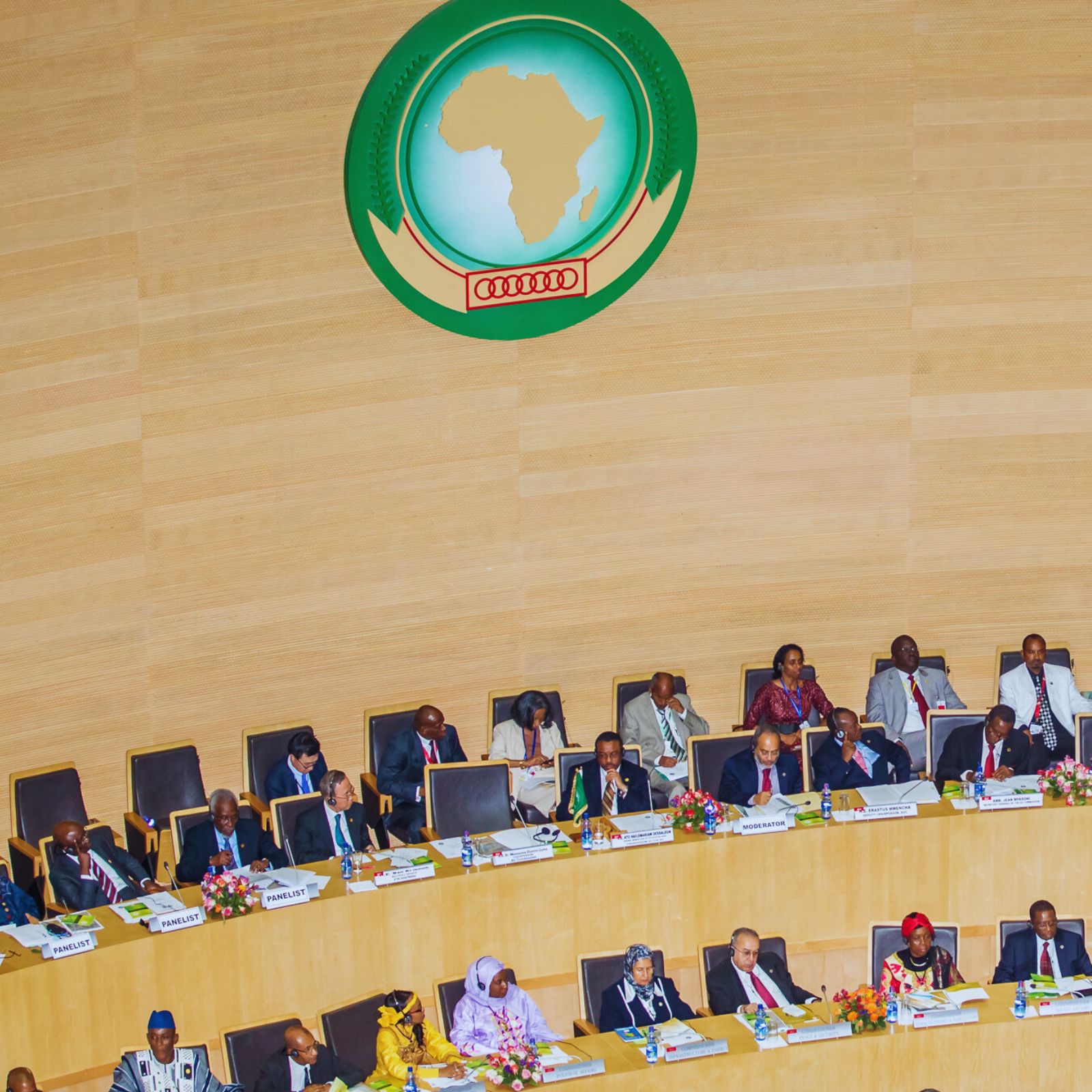
Titre Axe de recherche
Security Issues
The Security Issues research axis of Ifri's Sub-Saharan Africa Center explores the security stakes at play in the Sahel and in the Great Lakes regions. It notably examines the armed movements, the economies of illicit trades and the tensions surrounding natural ressources.
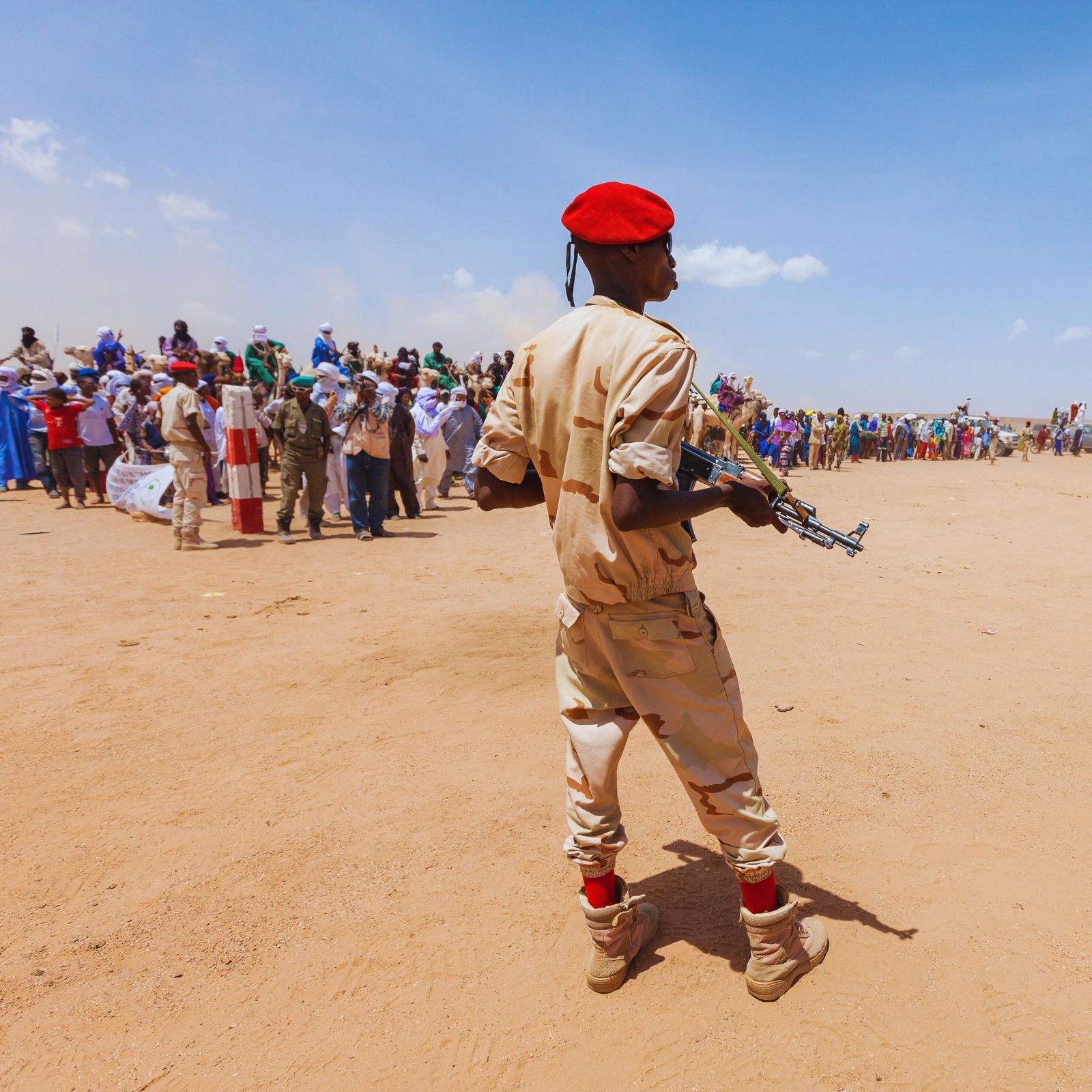
Titre Axe de recherche
Elections, Governance and Evolution of the State in Africa
The Elections, Governance and Evolution of the State in Africa research axis whithin Ifri's Sub-Saharan Africa Center covers electoral processes, domestic political dynamics, public policies, State governance practices, as well as State model evolutions on the African continent.
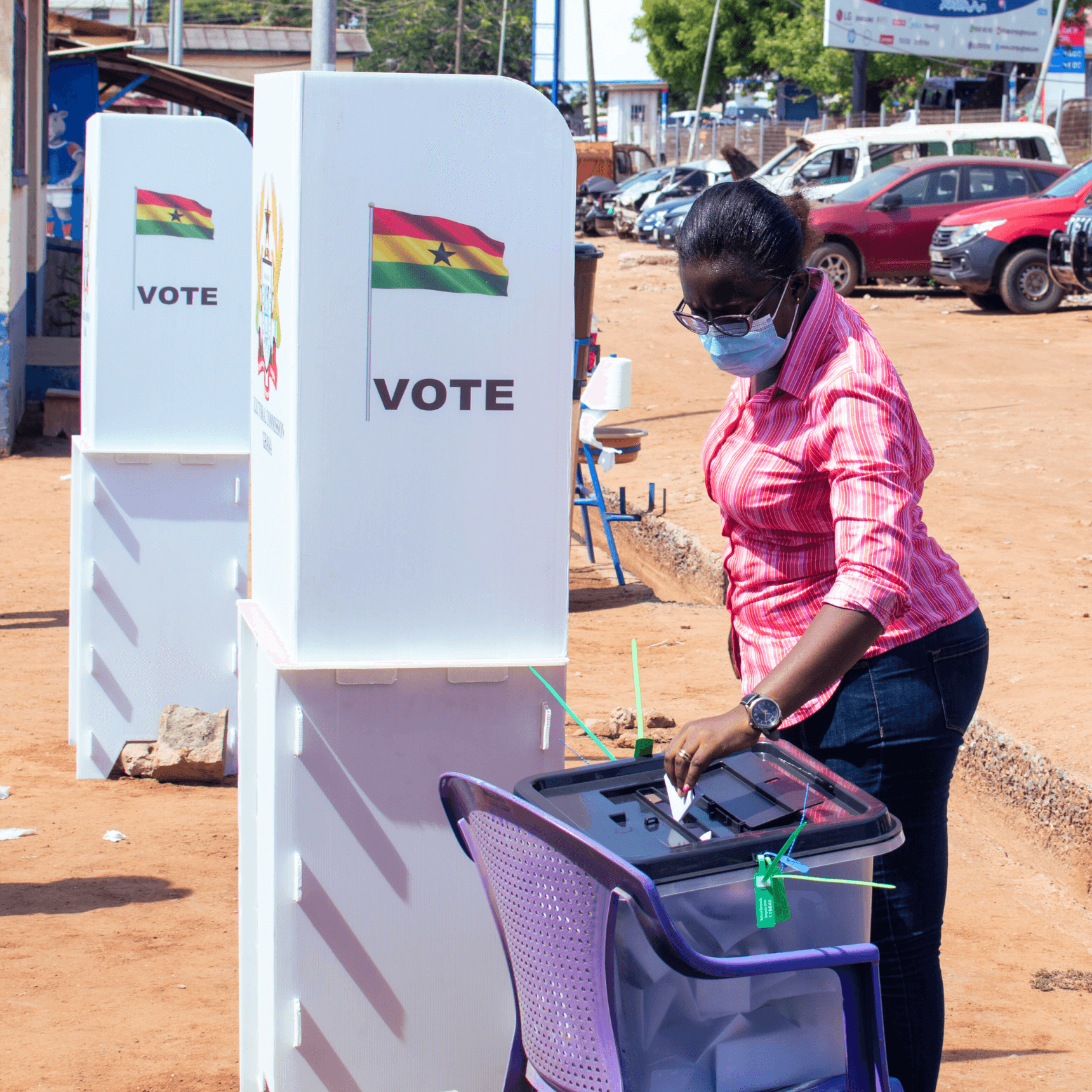
Titre Axe de recherche
Socio-economic Transformation of Africa
The Socio-economic Transformation of Africa research axis whithin Ifri's Sub-Saharan Africa Center focuses on African middle-classes, on African cities as a growth factor, on the urbanization of the continent as an element of transformation of African societies as well as on competition for access to land.
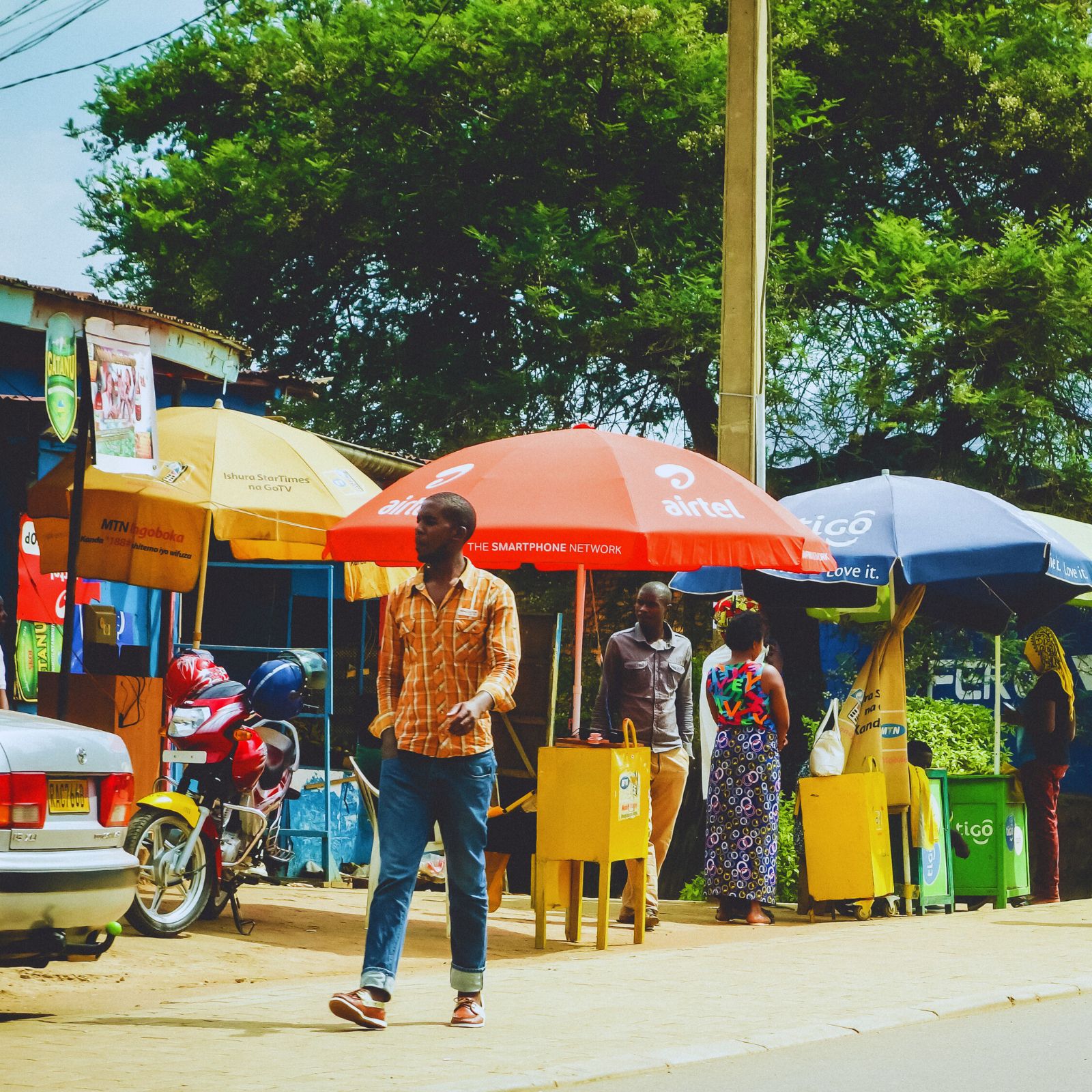
Titre Axe de recherche
Energy Challenges in Africa
The Energy Challenges in Africa research axis whithin Ifri's Sub-Saharan Africa Center adresses the exploitation of extractive natural resources on the African continent. It also covers the geopolitical stakes that derive from it, and the governance practices in this sector implemented by producing countries and by those about to become producing, such as East African States.

Publications
Arabs and Tuaregs in Colonial and Malian Armed Forces: A Story in Trompe-l'Oeil
This contribution consists in analyzing the unifying or opposing relations between the central State-power and the southern part of central-Saharan populations, mainly Arabs and Tuaregs, within the relational framework of colonial and Malian armed forces. The French Colonial State and the Malian independent State (from the 1960 independence movement) are both considered by Arabs and Tuaregs as external entities, whatever the form of their relation, good or bad.
Trafficking in the Sahel-Saharan Zone: Features and Stakes
On November 5th 2009, a cocaine-loaded Boeing 727 aircraft arriving from Venezuela was discovered torched and emptied on a makeshift airstrip in the Malian desert (Gao region). The Sahel-Saharan area is clearly a contact zone between very distant worlds.
Controlling Trafficking or Losing the North : Notes on Trafficking in Mauritania
Our interest in this topic stems both from our annual visits to Mauritania which started fifteen years ago, and the tiny amount of research noticed on trafficking in this country.
The Financial Challenges of the Sub-Saharan Africa Telecoms Boom
Telecom industry has taken a significant place within of the economy of most African countries. In this aspect, it is an undeniable source of economic growth and development. It impacts on the financial sphere at three levels.

What are the prospects after the nomination of Zimbabwe's national unity government?
Summary: Following repeated bouts of political violence, which were exacerbated by the presidential and legislative elections of 29 March 2008, opposition members and the government of Zimbabwe undertook lengthy and difficult negotiations to put an end to the unrest. These negotiations resulted in the creation of a new national unity government, which was sworn in on 13 February 2009. This marks the end of a long political battle between the regime of President Robert Mugabe and his opponents, of whom the new Prime Minister Morgan Tsvangirai had been the main spokesman. In a country on the brink of economic collapse, the new government faces enormous challenges. The economic and social balance remains precarious, and the political climate is still fraught with many rivalries. Thierry Vircoulon, associate researcher of IFRI's Africa Program comments on the crisis in Zimbabwe today, and delivers some thoughts on what we may expect from the new national unity government.
Madagascar Crisis
Summary: The scale of the violence which has hit Madagascar has taken many commentators by surprise. However, early warning signs were visible over the last few months. The origin of this crisis can be linked to President Ravalomanana's management of political, economic and social issues coming into disrepute. There are numerous similarities with the 2002 political crisis even if strong nuances are also present. Mathieu Pellerin, journalist and consultant, details the political, social and economic divisions which have ripped Madagascan society apart and personal rivalries between Madagascar's president and Antananarivo's mayor. Text in English will be available very soon.
Thabo Mbeki's Fall and Succession: Interview with Thierry Vircoulon
Angolan Elections, September 2008: Interview with Indira Campos
The Team

Our research fellows: Sub-Saharan Africa Center
Related research programs
Support independent French research
Ifri, a foundation recognized as being of public utility, relies largely on private donors – companies and individuals – to guarantee its sustainability and intellectual independence. Through their funding, donors help maintain the Institute's position among the world's leading think tanks. By benefiting from an internationally recognized network and expertise, donors refine their understanding of geopolitical risk and its consequences on global politics and the economy. In 2024, Ifri will support more than 70 French and foreign companies and organizations.










